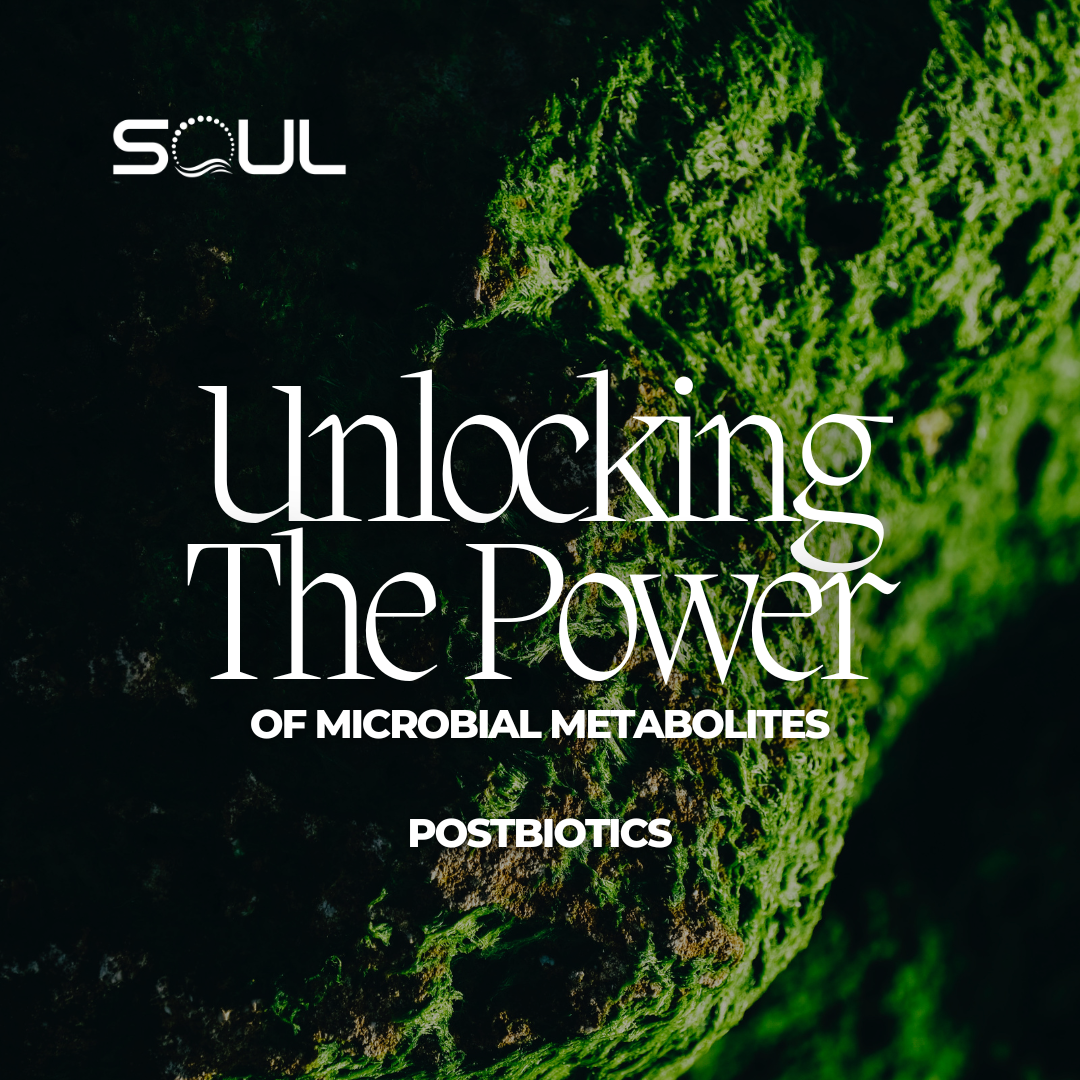
Postbiotics: The New Frontier in Gut Health
For years, the probiotics industry thrived on a simple yet powerful promise: populate your gut with good bacteria, and watch your health transform. But as with all great stories, there's always more beneath the surface. In the world of gut health, this deeper layer is called postbiotics. You may have heard the buzz about postbiotics being a game-changer. Well, it’s not just buzz. Postbiotics are the potent byproducts of probiotics that hold incredible potential for improving our health and wellbeing in ways previously unimagined.
What Exactly Are Postbiotics?
In essence, postbiotics are the metabolic gold left behind after probiotic bacteria do their job. Imagine probiotics as a hard-working factory, and postbiotics as the valuable goods that get shipped out. These are not just leftovers; they’re a curated collection of bioactive compounds including organic acids, peptides, enzymes, exopolysaccharides (EPS), and short-chain fatty acids (SCFAs), among others.
Postbiotics come in many forms—each more fascinating than the last. For example, we have short-chain fatty acids like acetate, propionate, and the celebrated butyrate. Butyrate is a bit of a rockstar in the postbiotic world, revered for its ability to power colon cells and reduce inflammation. Or consider cell surface proteins and peptidoglycans, which bolster the gut barrier and promote immune health.
The brilliance of postbiotics lies in their diversity. You can find exopolysaccharides secreted by gut bacteria that exhibit prebiotic-like effects, or bacteriocins, which are antimicrobial peptides designed to thwart pathogens. Let’s not forget about bioactive metabolites that offer antioxidant properties, reduce inflammation, or regulate metabolic functions. And all of this comes from a process we often take for granted—fermentation.
Postbiotics: How They Work
If probiotics are like seeds, then postbiotics are the nourishing soil. Here’s why:
1. Gut Health and Immune Modulation
Postbiotics, particularly SCFAs, play a crucial role in reinforcing the gut barrier. Think of your gut lining as a fortress; postbiotics help seal any weak points, enhancing your digestive system’s resilience. They also modulate the immune system, much like a seasoned diplomat, encouraging balanced and informed responses to potential threats. In fact, compounds like Polysaccharide A from Bacteroides fragilis act as a linchpin, promoting immune equilibrium and gut integrity.
2. Metabolic Regulation
We often hear of SCFAs in the context of gut health, but their influence stretches far beyond digestion. SCFAs such as butyrate can fine-tune glucose regulation and boost insulin sensitivity—offering a promising link to better weight management and metabolic wellness. This isn’t wishful thinking; it’s a mechanism firmly rooted in biochemistry. Imagine a thermostat that helps maintain a steady environment—postbiotics do just that for your metabolism.
3. Anti-Pathogenic Defense
One of the most exciting properties of postbiotics is their antimicrobial prowess. Bacteriocins selectively target harmful bacteria, creating a sort of microbial intelligence network that promotes a healthy gut balance. Picture bacteriocins as elite guardians, protecting the microbial harmony in your gut from foreign invaders.
4. Anti-Inflammatory and Antioxidant Effects
Postbiotics don’t just improve gut health—they impact whole-body wellness. The enzymatic and bioactive components produced by probiotics, such as lactic acid and metabolites from Bifidobacterium breve, can help counteract oxidative stress and tame inflammation. By doing so, they contribute to enhanced vitality and longevity.
Examples of Postbiotic Powerhouses
- Butyric Acid – The hero SCFA that powers colon cells and reduces inflammation.
- Lactocepin – An enzyme produced by Lactobacillus casei with a knack for antimicrobial action.
- Polysaccharide A – A cell surface polysaccharide from Bacteroides fragilis that maintains immune balance and strengthens gut barriers.
- Lactic Acid – Creates an acidic environment hostile to harmful bacteria but beneficial to your gut.
- Metabolites from Bifidobacterium breve – With their anti-inflammatory properties, they offer a calming influence on the gut.
The Future of Postbiotics
The story of postbiotics is still unfolding. While the term might be new, its potential isn’t. We’re witnessing the emergence of a new frontier in wellness, where the secret lies not just in the probiotics you take, but in what those probiotics leave behind. This deeper understanding challenges the outdated thinking that “live cultures” are all that matter. With postbiotics, we move beyond mere colonization to unlock an array of bioactive compounds that interact with our bodies in remarkable ways.
Researchers are only scratching the surface of what postbiotics can achieve. The journey from probiotics to postbiotics isn’t just scientific evolution; it’s a revolution in how we think about health.
These statements have not been evaluated by the Food and Drug Administration. This product is not intended to diagnose, treat, cure or prevent any disease. This article is for informational purposes only and is not a substitute for professional medical advice. Always consult your healthcare provider regarding any health concerns or before starting new supplements.
